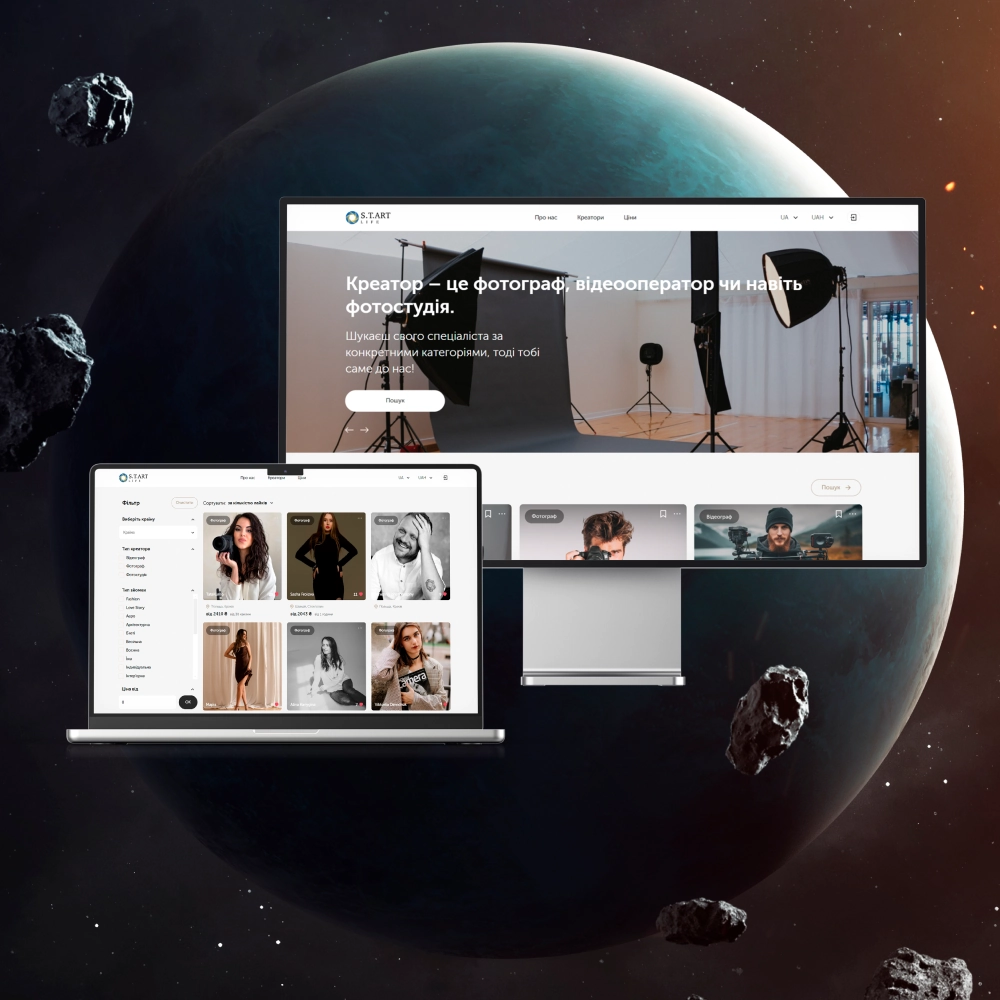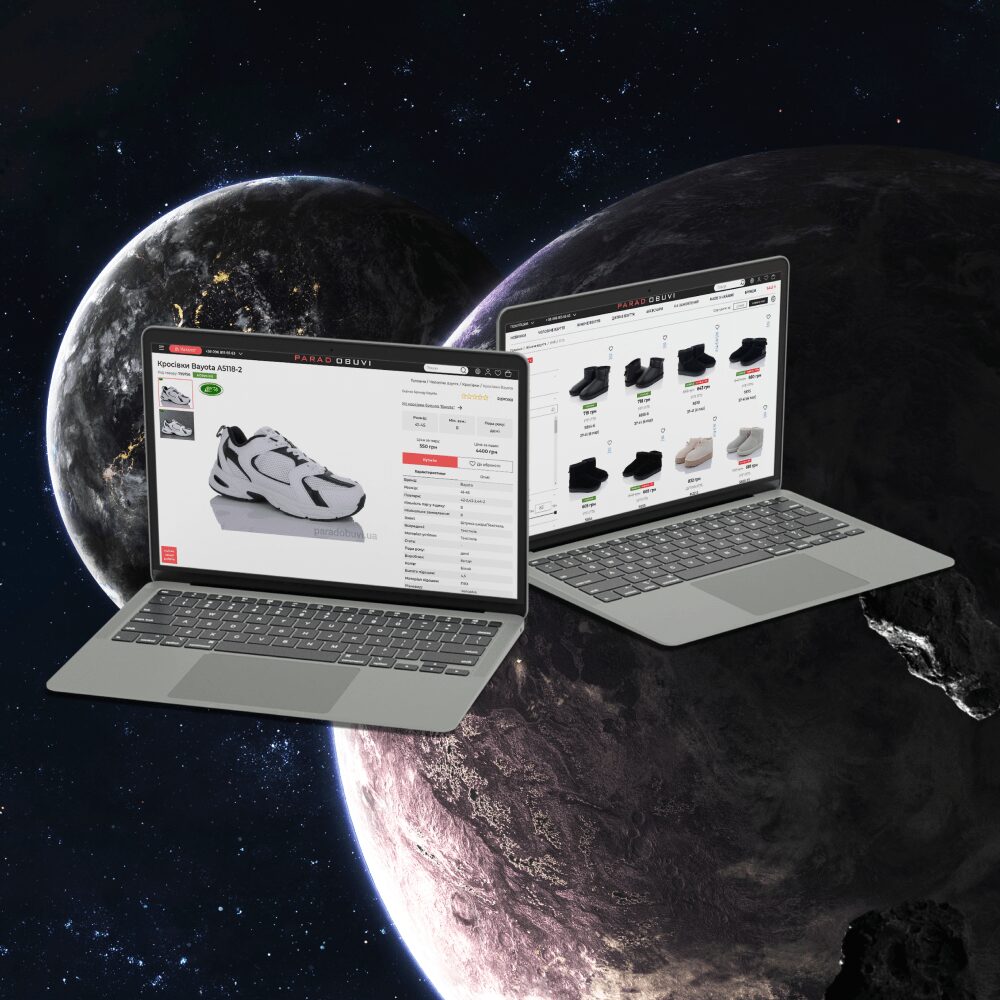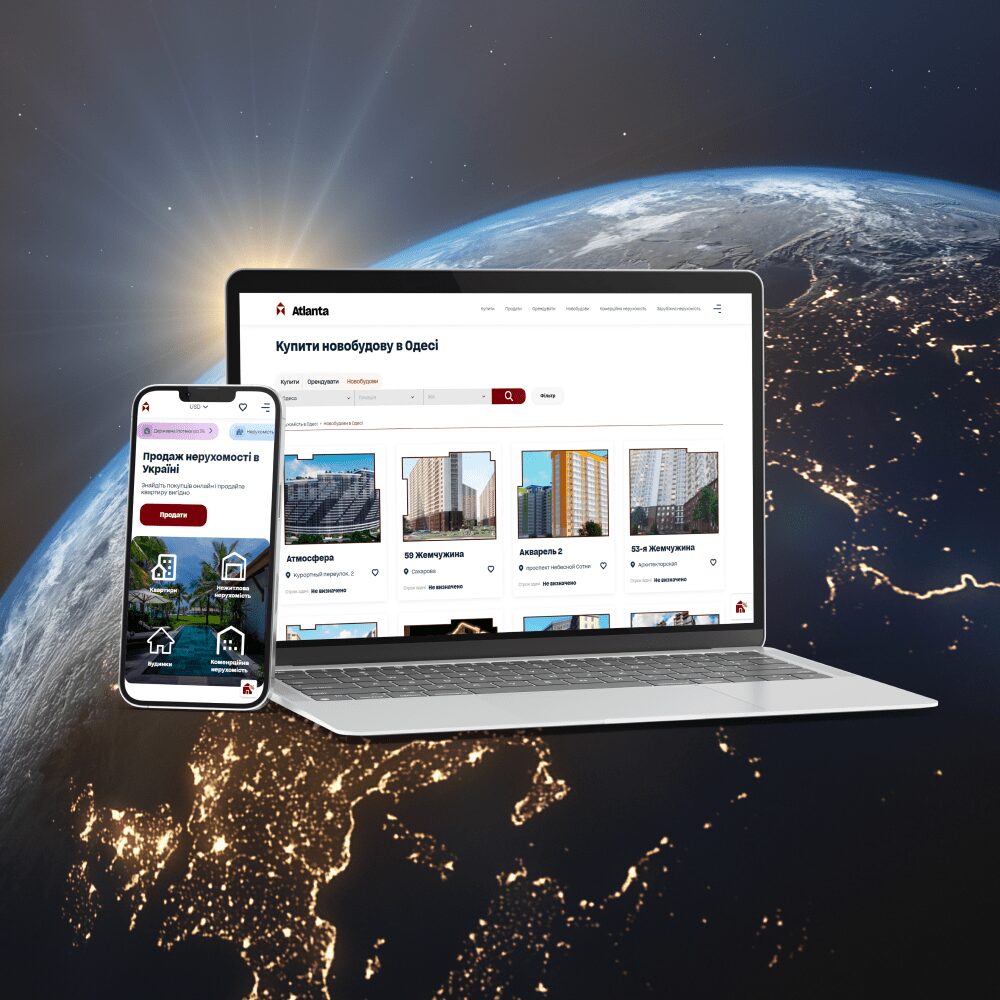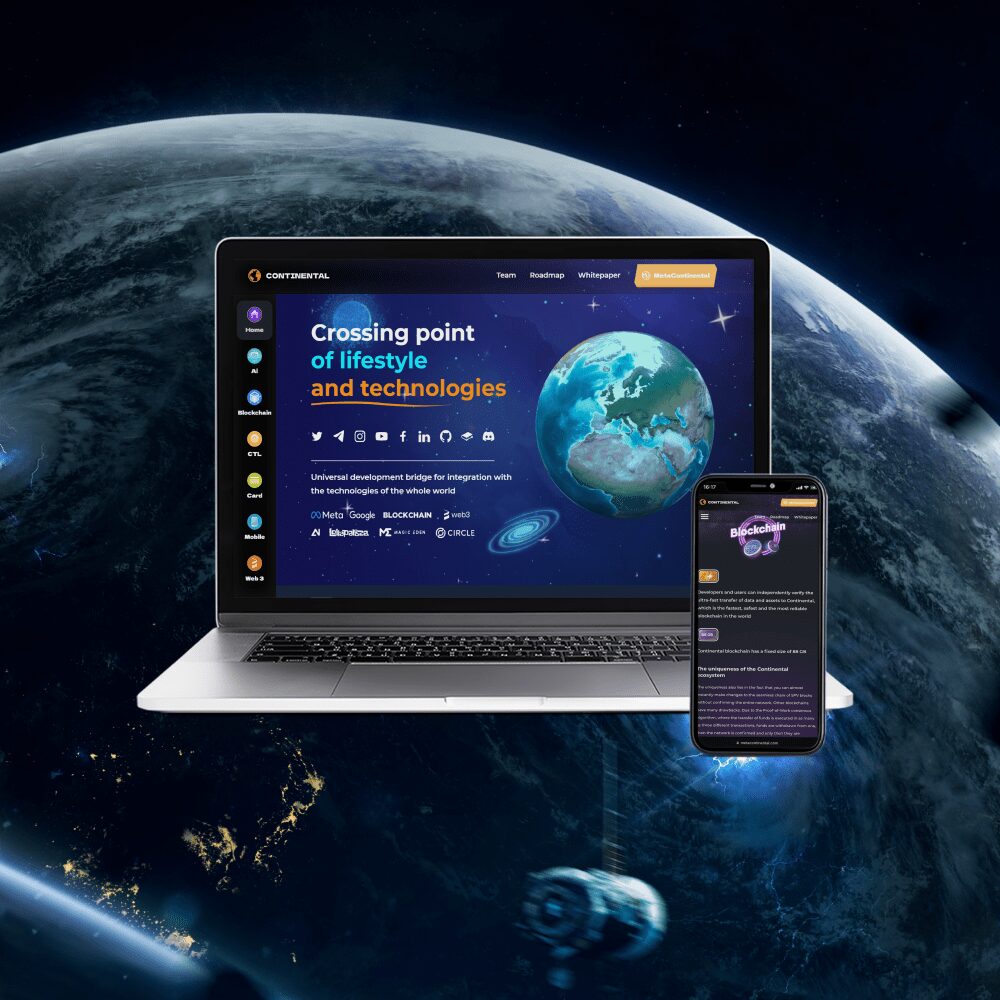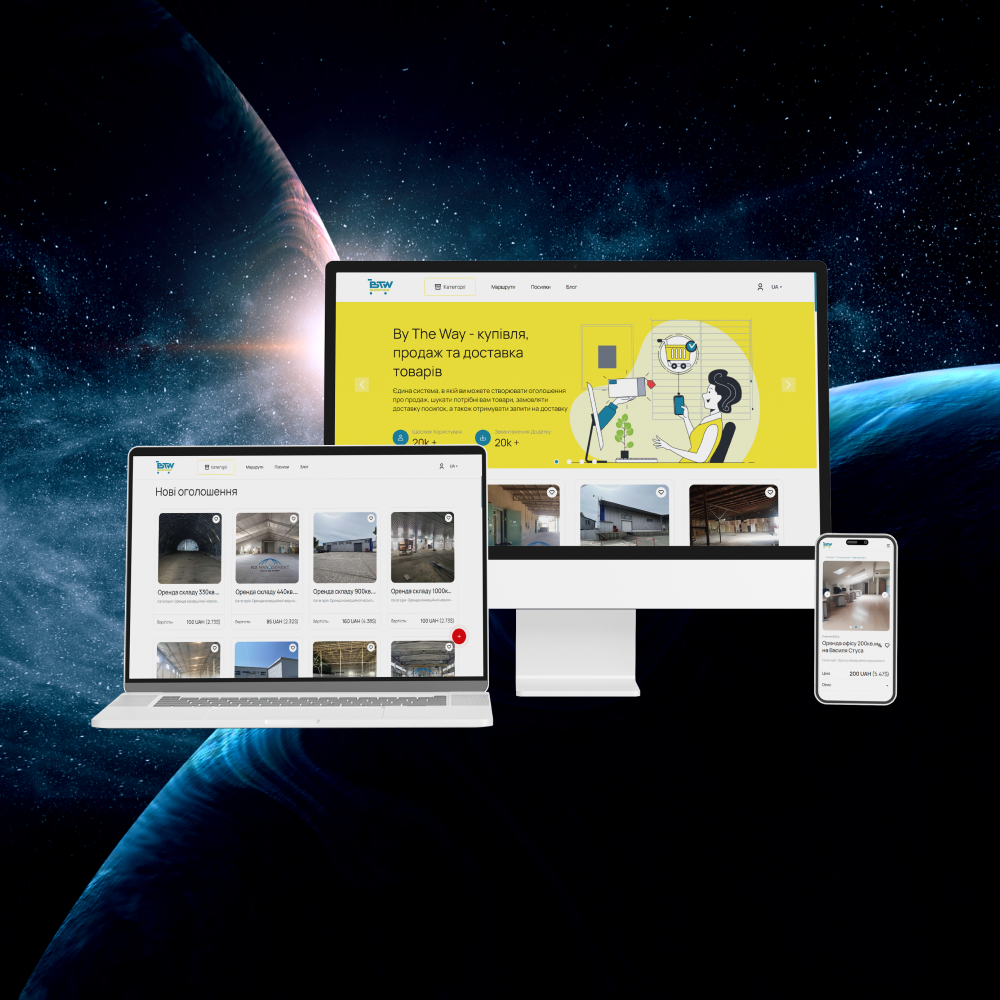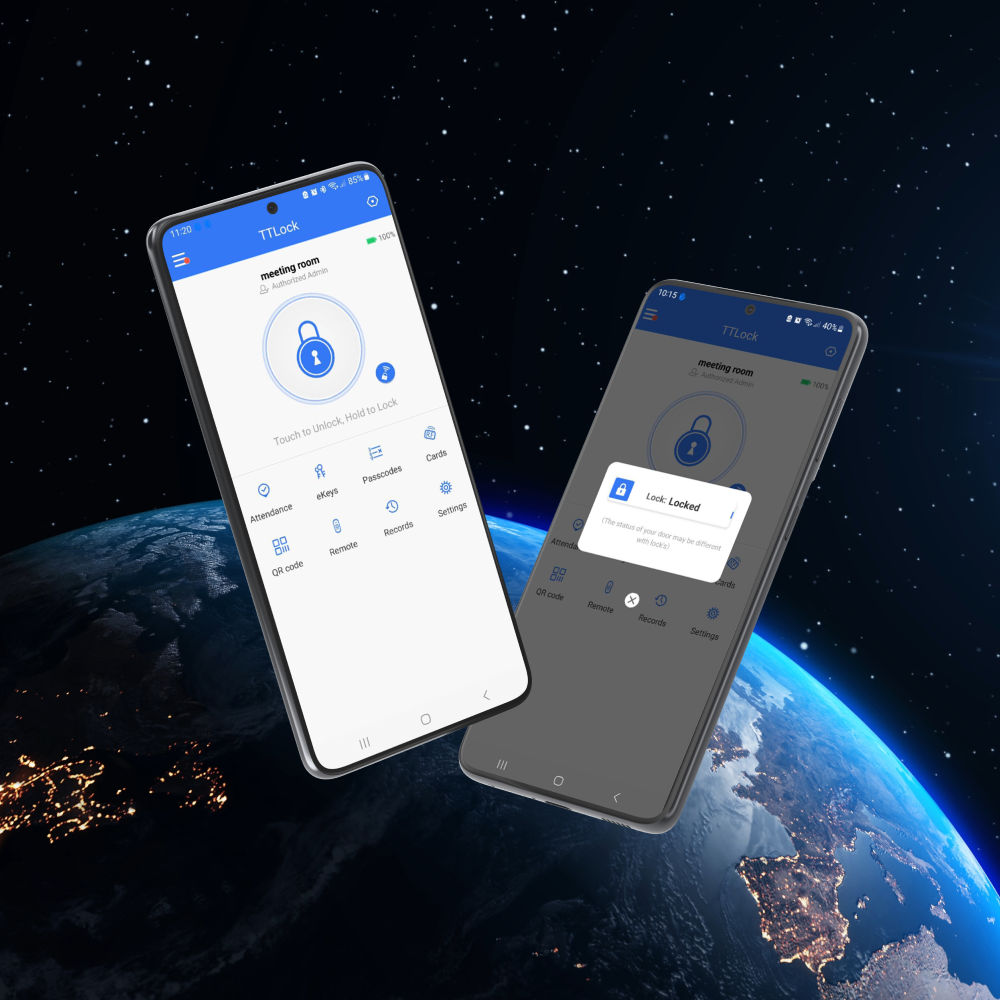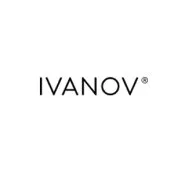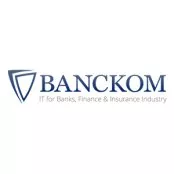Mobile applications for container terminals
Development of mobile applications for container terminals
Logistics and transportDevelopment of mobile applications for container terminals Logistics and transport
The field of transport and logistics is one of those areas where digital technologies are still lagging behind. Here it is more customary to rely on traditional and time-tested tools, and everything new causes distrust or even skepticism – why change something if everything works like that? At the same time, modern management systems can significantly expand the company’s capabilities, automate routine tasks and get ahead of competitors.
If we talk about mobile applications for container terminals, then their main task is to increase the productivity of staff. With their help, employees get the opportunity literally “on the go” to solve any issues related to the management of containers, and for this they do not have to be in the office.
Here are some of the main features of mobile apps:
- Receipt and delivery of containers.
- Selection of a container for cargo placement.
- Positioning the container on the site – choosing the most suitable place for its storage.
- Management of the movement of containers in the terminal.
- Performing an inventory.
- Setting tasks for storekeepers and monitoring their implementation.
- Maintaining digital documents.
- Monitoring of cargo storage conditions.
- Container tracking.
As a rule, mobile applications are created as part of the overall terminal management system. They significantly speed up the process of cargo handling and minimize bureaucratic processes. In this article, we will look at how the process of developing such solutions goes and what technologies are used for this.
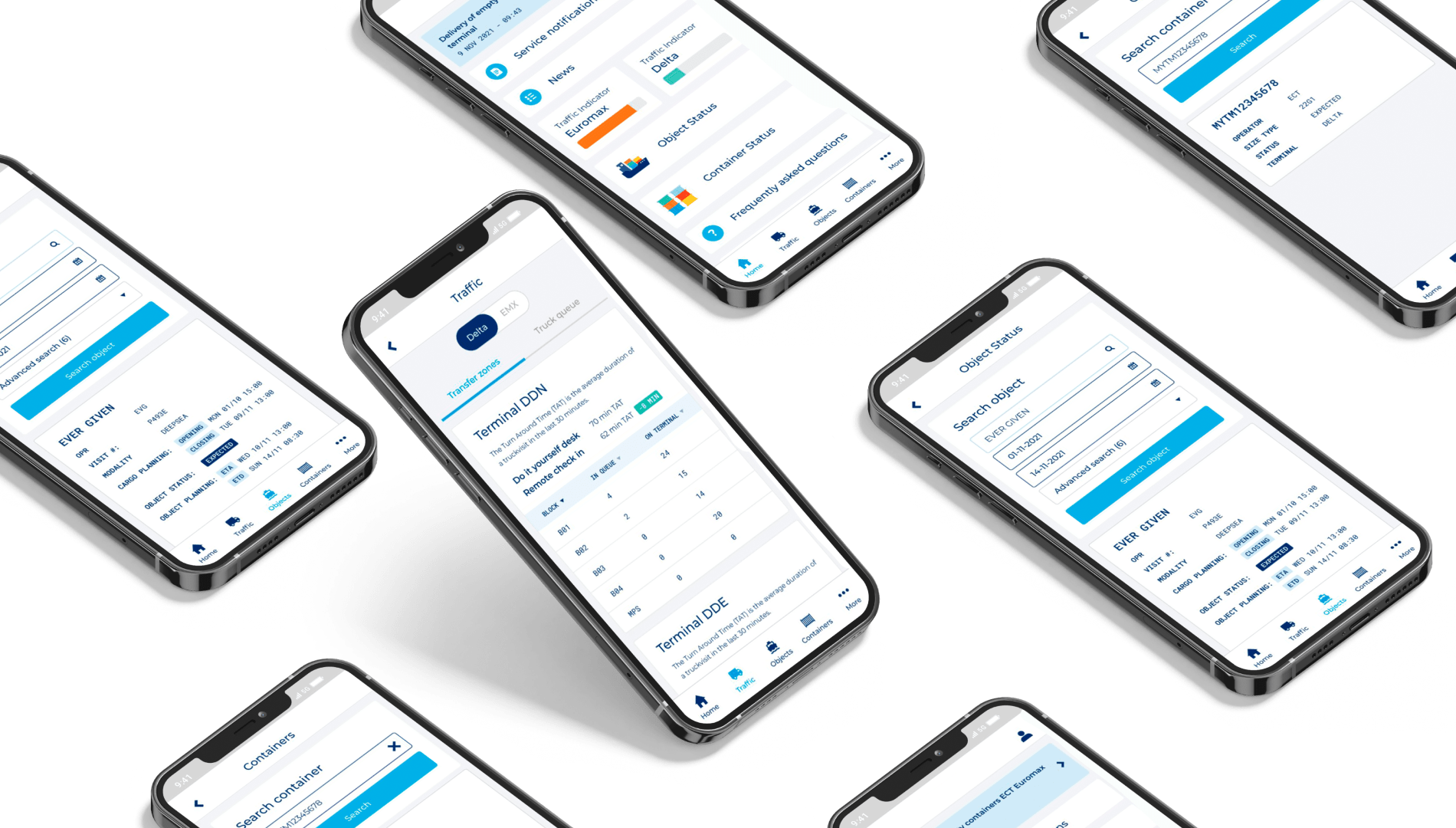
How technologies are selected
TechnologiesHow technologies are selected Technologies
The success and functionality of a product directly depends on how competently and correctly the technologies for its creation are selected.
This set of tools is called the technological stack. It affects the speed of the product, the cost, the specifics of development, and many other factors.
The technology stack for a mobile app might look like this:
- For IOS: Swift/Objective-C programming languages.
- For Android: Java/Kotlin languages.
- For cross-platform development: the Dart programming language and the Flutter framework.
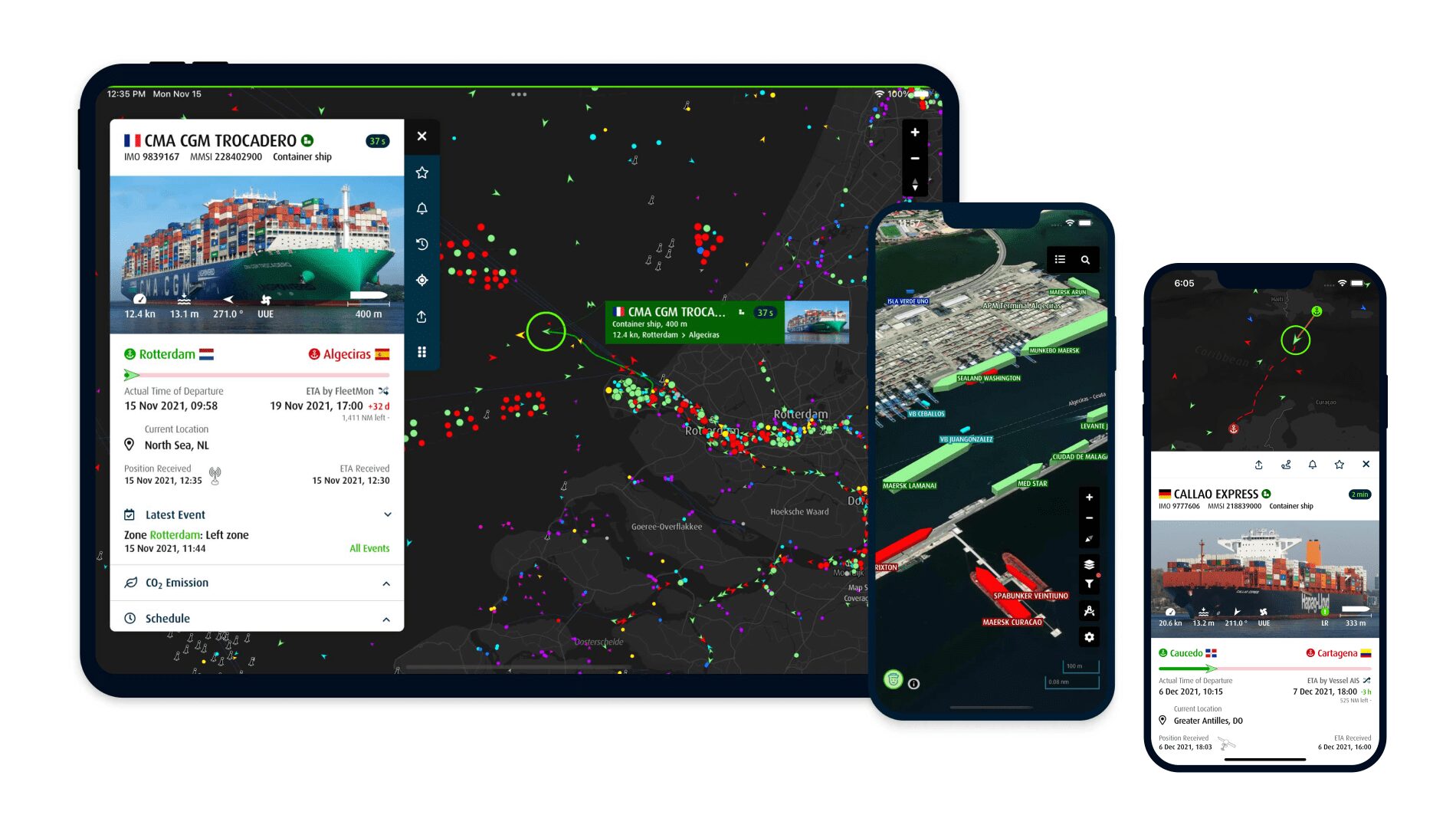
How the development process is built
Development stagesHow the development process is built Development stages
Mobile application development can be carried out according to different methodologies, however, when creating software for container terminals, we prefer to use Scrum. It involves an iterative approach – all work is done in short sprints, each of which has clear goals and deadlines. After the completion of the sprint, it is presented to the customer and approved. In addition to methodologies, there are also development stages. Let’s take a closer look at the six main ones.
Stage 1. Analytics
To create the most useful and functional application, developers need to fully immerse themselves in the client’s business, determine the goals and objectives of the project, and study the requirements and vision of the customer.
Therefore, development always begins with research and communication with company representatives.
Stage 2. Design, documentation and technology selection
After receiving all the necessary information, developers begin to design and form the concept of the application. The result of this stage will be a prototype, including mockups of interface pages, a navigation system, a description of the functionality, a technology stack, and a development plan.
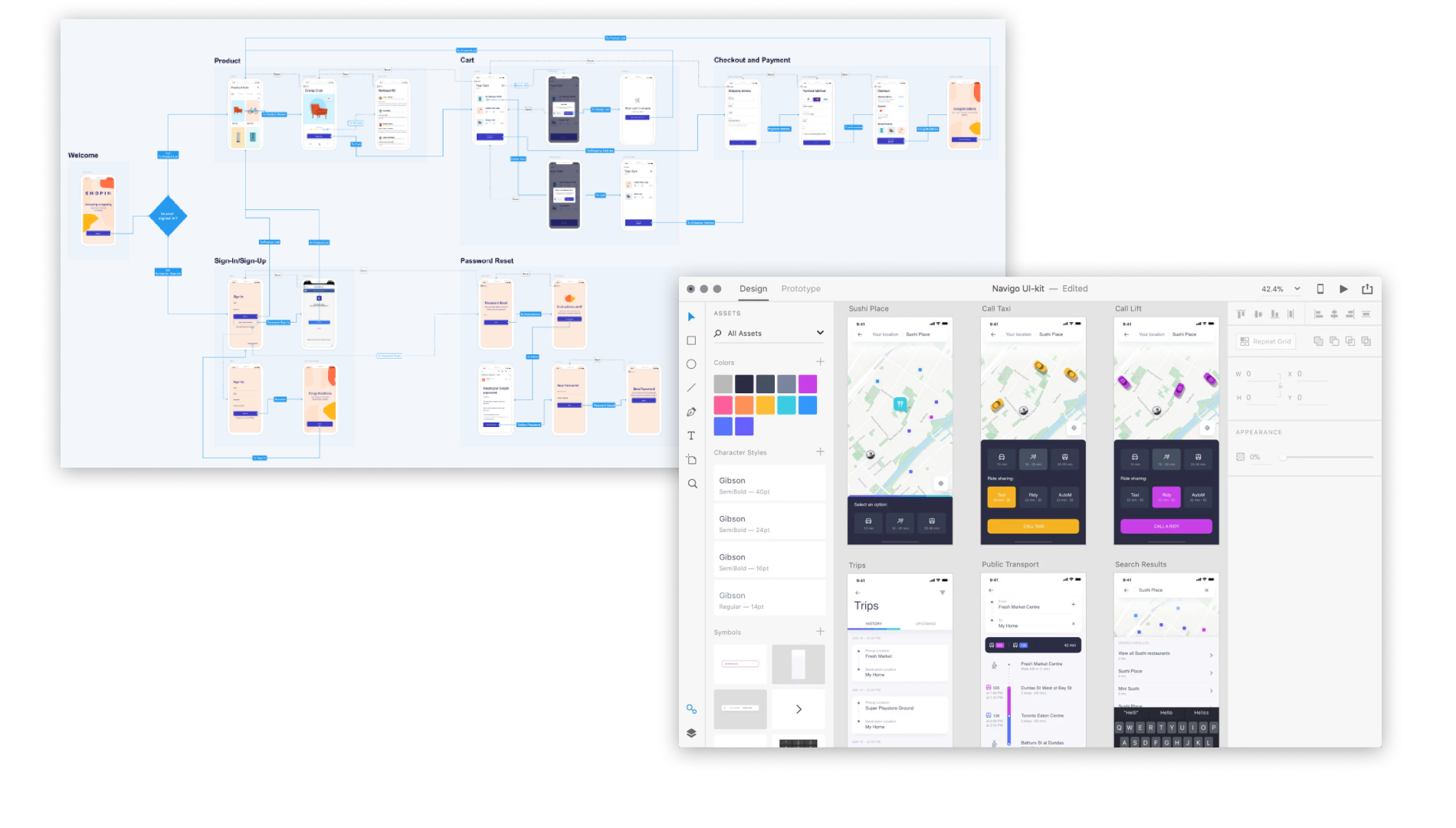
Stage 3. Design development
When designing a mobile application, specialists are faced with the task of creating a convenient visual environment adapted for use on relatively small screens of smartphones and tablets.
At the same time, it is important to take into account that container terminal management systems are a rather complex and functional product. Therefore, their design is most often developed individually, taking into account the technical features of the project, as well as the rules and principles of the UI.
Stage 4. Programming
This is the most time-consuming and lengthy stage of creating an application, which consists of two parts:
- Frontend. This is the client side of the application that end users work with. Frontend implementation includes layout, creation of animations, event handlers, interactive menus and other elements that make interaction with the application easier, more convenient and more enjoyable.
- Backend. The backend is the server side of the application. When developing it, programmers build the database architecture, set up servers, perform integrations with third-party services using APIs, and write code that ensures the functionality works correctly.
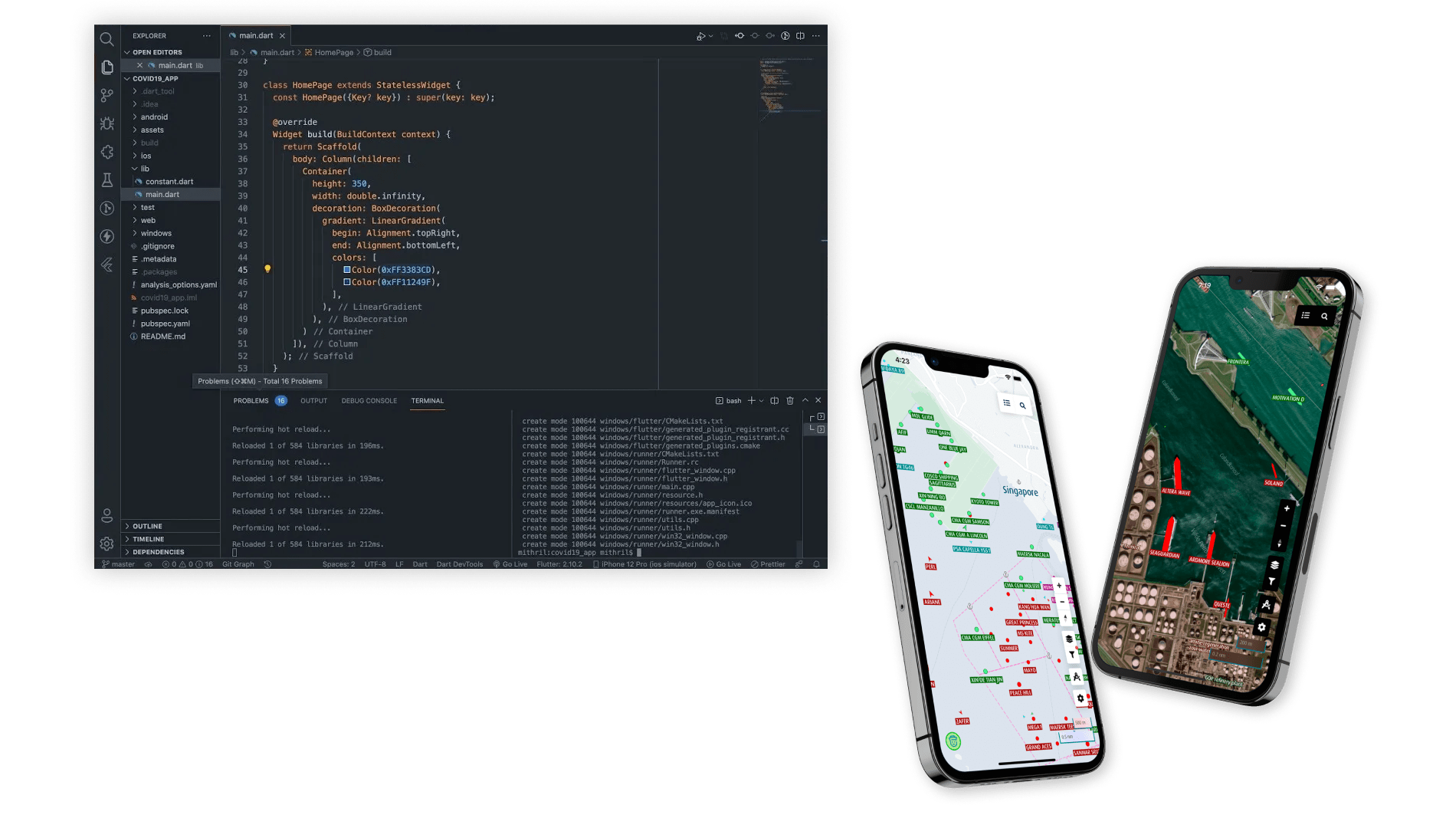
Stage 5. Testing
Before release, the application undergoes mandatory testing. At this stage, QA engineers simulate various situations that may arise when using the application in real conditions and look for problem areas where the functionality behaves incorrectly. If errors are found, the project is submitted for revision, and then checked again.
Stage 6. Technical support and development
Professional technical support allows you to quickly and efficiently solve any problems related to the operation of the application.
This is especially important in the first weeks after the release, as during this period users are most likely to encounter bugs that were not previously discovered.
In addition, you can always continue developing the application – add new functionality to it, improve and change the existing one, edit the visual design and perform absolutely any manipulations. For such purposes, developers create separate patches, which are then integrated into an existing product in an update format.
Development of mobile applications for container terminals in AVADA MEDIA
Development of mobile applications for container terminals in AVADA MEDIA
A mobile container terminal management system will help optimize routine processes in your enterprise and significantly increase its productivity. As a result, you will be able to increase the volume of cargo handling, increase the profitability of your business and open up new development paths for its development.
AVADA MEDIA has extensive experience in mobile development and always strives to find the best technical solutions for its customers. In our work, we rely on the expertise of the team, the possibilities of innovative technologies and close interaction with the customer.
Fresh works
We create space projectsFresh works
The best confirmation of our qualifications and professionalism are the stories of the success of our clients and the differences in their business before and after working with us.
Our clients
What they say about usOur clients What they say about us
Successful projects are created only by the team
Our teamSuccessful projects
are created only by the team Our team
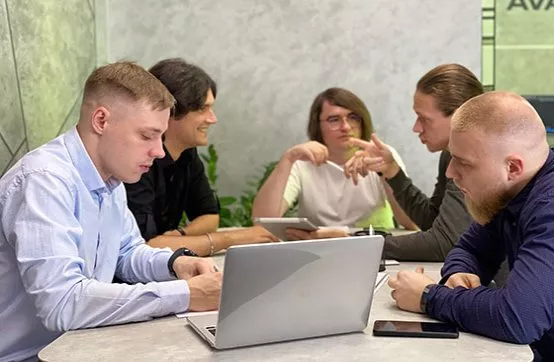

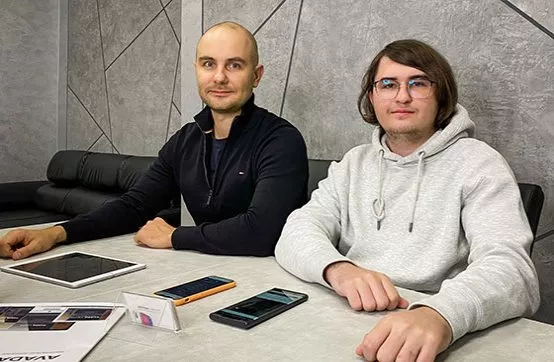
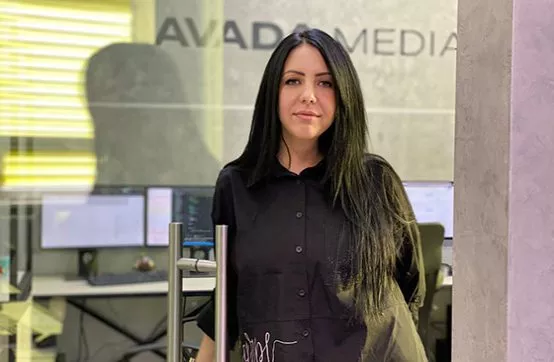
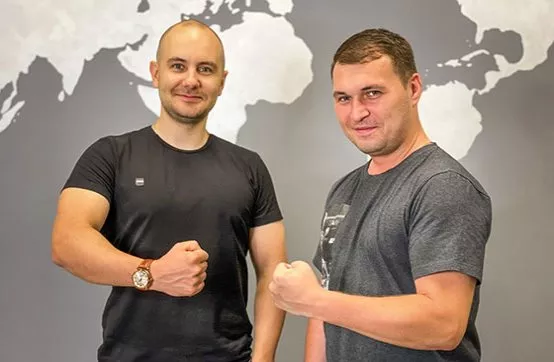
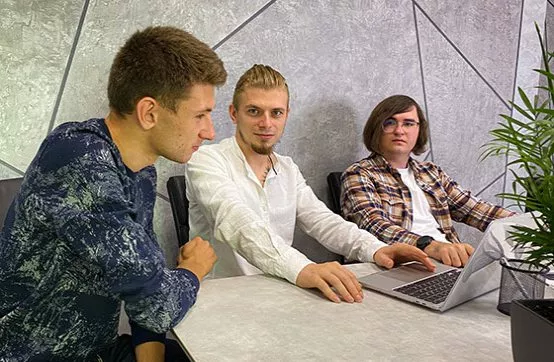






Contact the experts
Have a question?Contact the experts Have a question?
-
Phone:+ 38 (097) 036 29 32
-
E-mail:info@avada-media.com.ua
